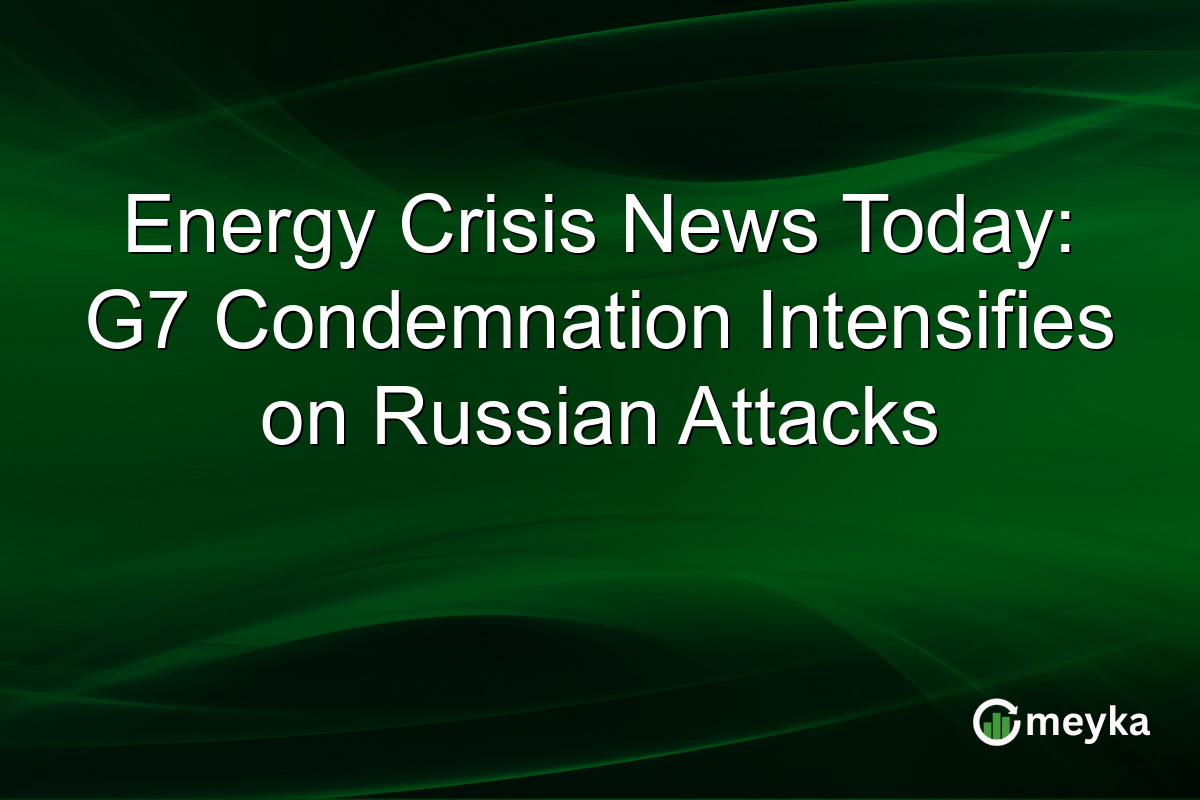Energy Crisis News Today: G7 Condemnation Intensifies on Russian Attacks
Recent developments in the G7’s condemnation of Russian energy attacks shine a spotlight on escalating geopolitical tensions. With a particular focus on Russia-Ukraine conflict dynamics, the G7 has intensified sanctions, raising questions over global energy stability. This article explores how these political actions could impact energy supply chains and market confidence.
Continue Reading on Meyka
This article is available in full on our main platform. Get access to complete analysis, stock insights, and more.
Read Full Article →





